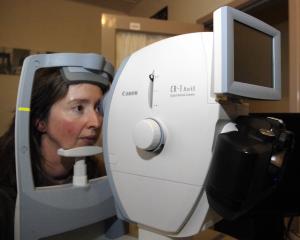Outstanding applications for installing haemodialysis machines in people's homes in Otago should be processed immediately, following concerns about delays raised this week by Otago District Health Board representatives.
Enable NZ general manager Heather Browning said the delays were not the result of a lack of funding.
The organisation was facing an increase in demand for both housing modifications and equipment.
With a change in processes, it was struggling to keep up.
The change was designed to make life easier for occupational therapists and physiotherapists who no longer had to get quotes from suppliers as this was being done by Enable staff.
At this week's hospital advisory committee meeting, chairman Richard Thomson raised questions about a report which said getting approval for requested funding for the machines in patients' homes was taking "lengthy periods" and there was an increase in scrutiny of applications.
It needed to be established if rationing was involved.
If it was a matter of there not being enough money and they would have to wait for six months, then patients needed to be told that, he said.
The committee was told the delays were putting pressure on the hospital's dialysis unit.
Member Dr John Adams asked whether having to provide the dialysis in hospital rather than in the community was resulting in a higher cost.
Ms Browning said Enable had the Ministry of Health contract to manage haemodialysis machine installations in Otago and Southland and South Canterbury.
About 12 outstanding applications were involved, five of them in Otago.
The oldest one received was October 7, followed by October 20, two on November 11 and one on November 17.
Normally, they should be processed within two to four weeks and she had asked staff to process them immediately.
There was no increase in scrutiny of the applications.
Demand for both equipment and housing modifications south of Auckland (the area served by Enable) during the first third of this financial year was unprecedented, with equipment applications up by 619 a month compared with the same months last year and housing modification applications 53 higher a month.
The system was ensuring that commonly used equipment, for those who were coming out of hospital, was delivered in two or three days.
It was too early to tell if the increase was just a "bubble" or if it would continue later in the year.
Demand for equipment and housing modifications was increasing as the population aged and people's expectations rose, Ms Browning said.
Discussions were being held with the Ministry of Health over the issue.











